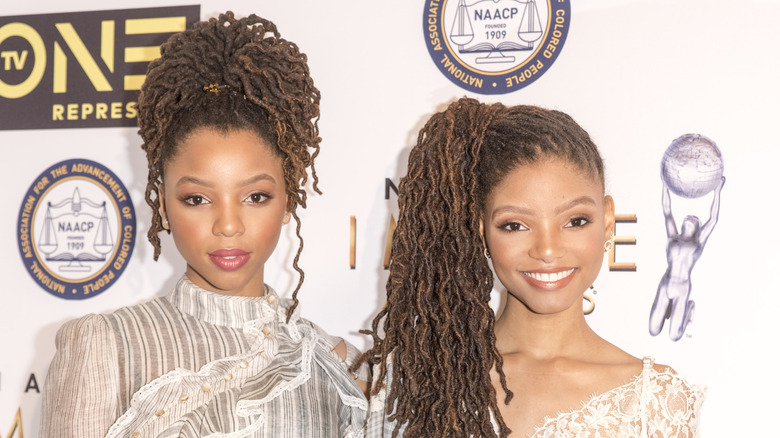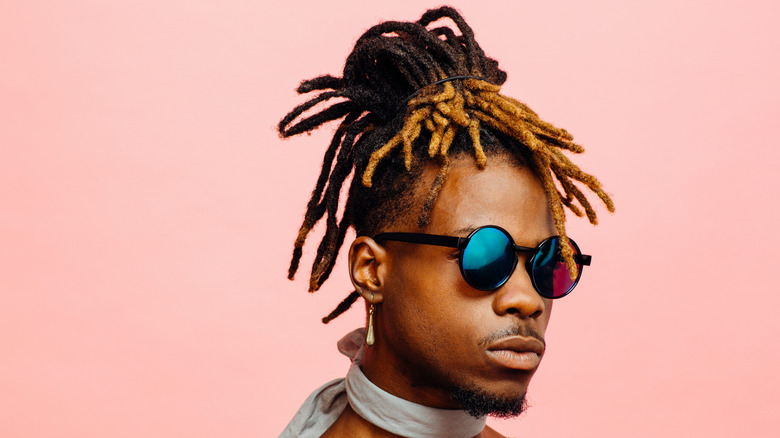Dreads Vs. Locs: What's The Difference?
You might think that dreads and locs are the same thing (and may have even used each word interchangeably). But surprise, surprise. For some people who wear their hair in this way, dreads and locs are not the same hairstyles. Per TheyDiffer, both dreads and locs are created by sculpting one's hair into ropes. They are both generally considered a style particularly connected to people across the African diaspora.
This style can be created through various methods including coiling, braiding, and twisting. But some wearers simply let their hair "lock" naturally, by not combing it and allowing it to take on the rope-like forms over time. For many Black people, these styles have a cultural significance, although the history of locs spans many different cultures in addition to African ones, including Indian, Aztec, and Middle Eastern, per Esquire.
As Going Natural reported, the core difference between the two is that one is a hairstyle and the other is a lifestyle, according to some people who wear their hair this way. Still, some may prefer to not use the words "dreads" or "dreadlocks," as they have a negative connotation applied to them, the outlet reported. According to TheyDiffer, the origin of those terms is from the slave trade, when enslaved people couldn't groom their hair properly, as they no longer had the time or tools to do so. Slave masters would call their hair "dreadful," hence the word "dreadlocks." Thus, using such a term embodies a painful history when Black people were demonized for their hair.
Some people prefer the term locs over dreads
Therefore, if you want to refer to this style, it's best to stick with the word "locs." Per Going Natural, however, Rastafarians use the word "dreads" to set themselves apart for a cause greater than them. Further, Refinery29 reported that there's a spiritual connection with locs as certain cultures, like Rastafarians, believe energy is connected to your hair. "People from different faiths look at their hair to be holy and as a form of strength and power," said celebrity stylist Lavette Slater. "To not comb your hair, to some, is a disregard of vanity and things of the world."
The connection between Jamaica and locs was highlighted with Bob Marley, who unintentionally popularized the style. Further, Whoopi Goldberg normalized the hairstyle (and shed the idea that only Jamaican culture and locs were related) in the late '80 and 90s. "It was Whoopi, beginning in 1985, who gradually gave Black Americans what might be called cultural permission to wear dreadlocks ... And, she did it by establishing a context around the hairstyle that had nothing to do with Jamaica, reggae, or the Rastafari," writes Dr. Bert Ashe. "Gradually, her enormous fame gave dreadlocks a certain odd, quirky normalcy that allowed for — or, at least, coincided with — the flourishing of the hairstyle" (per Refinery29).

